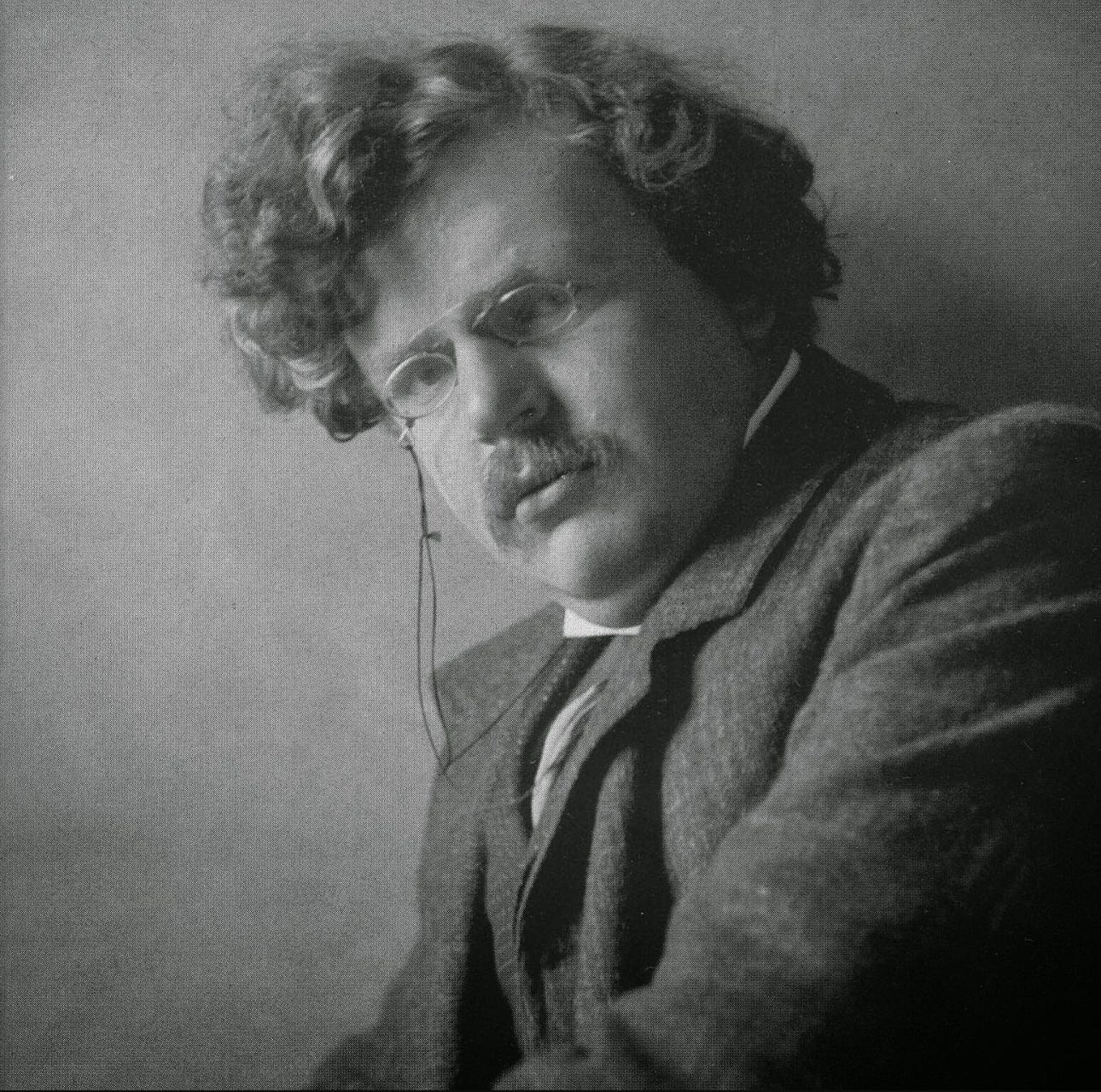Gilbert Keith (or G. K. as he was known) Chesterton (May 29, 1874 – 14 June 14, 1936) was an English writer of books, magazine articles, and newspaper columns. His areas of interest and expertise were philosophy, Christianity (he was a practicing Catholic), literature and art. He wrote both fiction and nonfiction.
His thinking and manner of expressing thoughts were, and still are, unique, engaging, and thought provoking.
For example, Chesterton would not argue the existence of the story of the Garden of Eden and the fall of man as being true or untrue. Instead, he would ask for a better clearer explanation as to the origin of life and the existence of man as a creative creature.
At the same time, Chesterton would reject explanations about how things work out naturally if given lots of time to do so. There are still at least three necessary leaps that cannot be explained: (1) from nothing to everything, (2) the origin of life, and (3) the origin of man.
We don’t live in a logical world, he would say, one we can explain, and science doesn’t help in this regard.
It cannot prove or disprove origins because they are singular events.
This also means that we can discover, learn, and possibly, in a limited way, know many things, but we can’t use what we know to accurately peek into the past to explain how any of it began.
At some point we must come to the one logical realization that things started at some point from nothing at all — and it doesn’t matter if this thought is surd or absurd, it is what it is.
Reality is often wilder than fiction, but that never makes it less real.
Now allow me to let Mr. Chesterton state a few of these things in his own words.
Quotes from The Everlasting Man. First published in 1925.
For Nobody can imagine how nothing could turn into something. Nobody can get an inch nearer to it by explaining how something could turn into something else.
Page 15
The matter here is one of history and not of philosophy so that it need only be noted that no philosopher denies that a mystery still attaches to the two great transitions: the origin of the universe itself and the origin of the principle of life itself. Most philosophers have the enlightenment to add that a third mystery attaches to the origin of man himself. In other words, a third bridge was built across a third abyss of the unthinkable when there came into the world what we call reason and what we call will.
Page 17
…the more we really look at man as an animal, the less he will look like one.
Page 18
Art is the signature of man.
Page 25
When all is said, the main fact that the record of the reindeer men attests, along with all other records, is that the reindeer man could draw and the reindeer could not.
Page 26
…every sane sort of history must begin with man as man, a thing standing absolute and alone.
Page 26
But an excellent test case of this isolation and mystery is the matter of the impulse of art. This creature was truly different from all other creatures; because he was a creator as well as a creature.
Page 27
The simplest truth about man is that he is a very strange being; almost in the sense of being a stranger on the earth.
Page 27
For reality is a thing in which we can all repose, even if it hardly seems related to anything else.
Page 30



